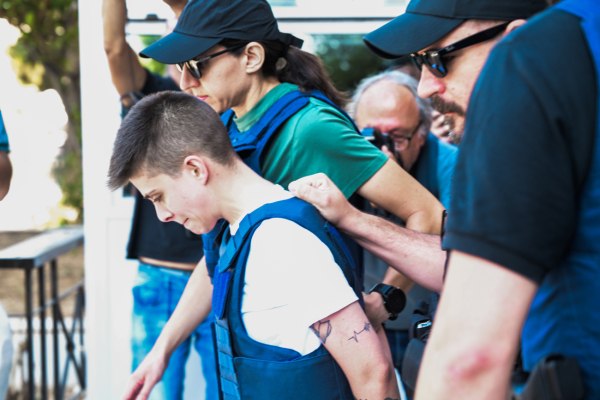The Greek judicial system may not be as effective and swift as it should be, but on the basic points it is clear.
These include the presumption of innocence: “Suspects and those charged are deemed innocent until their guilt is proven in accordance with the law.”
Greece does not have the death penalty, which is incompatible with both our democracy and our membership in the European Union.
There is much evidence that indicates that the death of three young sisters [nine-year-old Georgina and her two younger siblings before her] in Patras is due to a heinous and hair-raising crime that is unprecedented not only for Greece, but perhaps also in the annals of crime internationally.
That does not mean that the fundamental principles of a state that functions under the rule of law can be violated. The mother [Roula Pispirigou, photo] has already been charged with voluntary manslaughter in the case of the death of her eldest daughter, and the investigation is still underway.
It is not the job of a mob to take the law into its own hands or to deliver a verdict and decide the sentence. The scenes of enraged crowds that we saw in Patras [at the parents’ home] and outside of the courthouse in Athens are unacceptable.
The public’s emotional reaction and disgust are understandable. As Ta Nea wrote yesterday, this case is a “hard punch to the stomach of Greeks”.
Yet, the judiciary must be allowed to do its job freely, in an unbiased manner, and without emotional pressures, so that those who may have committed the crime or did not act to avert it can be punished.


























